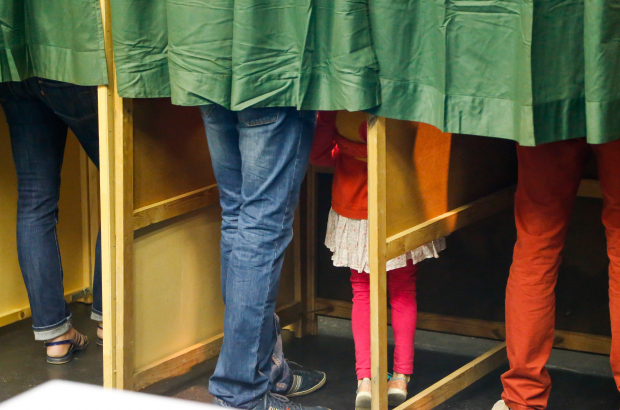- Daily & Weekly newsletters
- Buy & download The Bulletin
- Comment on our articles
Study shows Belgium a decade away from internet voting in elections
Will Belgians be able to vote via the Internet in Belgium any time soon? A new study commissioned by the interior ministry and conducted by a consortium of Belgium universities says this will still be impossible in 2024 but could happen in 2034.
According to interior minister Annelies Verlinden, an online voting test could still be carried out as soon three years from now before the next federal, regional and European elections.
Voting online, from home, would be a small revolution. No more getting to the polling station, no more queuing, no more administrative hassles and complicated organisation.
In Estonia, this has already been the case since 2011, following a successful test in 2005. But in Belgium, there has been little progress and citizens will still be waiting for any evidence of some in 2024, according to the university study, the first part of which was to look at the introduction of online voting and the guarantee of the security conditions of such a process.
Verlinden writes in her report for parliament: "The first part of the study concludes that it seems impossible to envisage a generalised transition to Internet voting for the 2024 elections for the following reasons: security guarantees are not sufficient; transparency and procedural verifiability cannot be guaranteed; costs are difficult to estimate accurately but will be high in terms of cost per vote cast; Belgian citizens must be familiar with early and remote voting; and the legislative and organisational framework for elections must be adapted to make remote and early voting possible."
On the other hand, she says, "the study specifies that a transition to online voting for 2034 can be envisaged provided that reliable and cost-effective solutions develop in the coming years and that the Belgian public authorities begin now to prepare for such a transition to internet voting.” To this end, she continues, the study proposes to set up a pilot project combining online and offline aspects during the 2024 elections.
The second part of the study – investigating the viability of implementing a pilot project - is still ongoing. "In this regard, it is preferable to consider the implementation of this pilot project for voters already familiar with remote and early voting (which the first part of the study highlights), specifically Belgians residing abroad,” Verlinden writes in her report. “These voters, already familiar with postal voting, constitute an interesting panel for the implementation of such a pilot project. We are looking at that in more detail."
In any case, according to a poll conducted between May and June 2020, 70% of respondents said they were in favour of voting via the internet. "Given the evolution of modern technologies and the possibilities of remote connection, also given the current health crisis that has led us to rethink the way we work and get together, would it not be appropriate to analyse the possibilities of providing an alternative or even a complement to paper voting?" asks Christophe Bombled, a member of parliament for the liberal Reformist Movement.
A remote vote would provide citizens with more flexibility. But for some, nothing beats the traditional paper vote and the ballot box. The PourEVA movement has been campaigning against automated voting for several years, on security groudns.
Recently, in an analysis published on its website last October, the association states that "the many serious disadvantages of internet voting are far from being offset by the few advantages that this technology can present. None of today's existing Internet voting systems ensure the secrecy of the vote and the effective control of the vote by the voter. For all these reasons, PourEVA therefore votes against any form of internet voting for political elections."
"Many internet voting experiments have been done around the world, the first dating back to 1998 in Germany,” the PourEVA analysis continues. “Then came the United States of America, Sweden, Switzerland, France... However, most of these tests will be found to be inconclusive and will be discontinued. Only Estonia now offers all its citizens internet voting for all elections. It coexists with paper voting, which remains a priority."
















